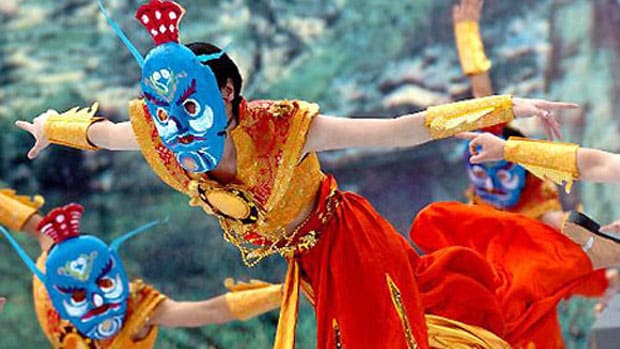In early June, my friends and I went traveling in Sichuan, a large and heavily populated province located in southwest China. It bore the brunt of the 2008 earthquake, but it has always been an attractive place with mighty mountains and rushing water. After we spent two days enjoying the magnificent and colorful views of Jiuzhaigou and Huanglong, the tour guide took us to experience local Tibetan culture. On the evening of the second day, we went to a Tibetan family to have dinner.
As we entered the house, we were led into the dinning room colorfully decorated in a typical Tibetan way. After we were all seated, the hostess presented herself, speaking Mandarin fluently with a somewhat diplomatic tone, “Thank you very much for coming…The money you paid us will mostly be given to the local temple…” I believe what she said, but it was apparent that she was very well prepared and I guess she must have been saying those words to different tourists for countless time, because hosting tourists is her job.
During dinner, the hostess designed “games” to entertain the tourists, but someone has to be the victim. Unfortunately, she picked my friend and persuaded him to call her “wife”, or he would be punished to take off his jeans. He was also forced to drink a big bowl of Highland barley wine (a locally produced wine). My friend was really embarrassed, but the rest of the tourists kept laughing and clapping their hands. In addition, two other guys were even forced to dance together as if they were a couple. Ironically, the background music wasn’t anything Tibetan, but was pop music with beating rhythms. My other friend and I found it really awkward. I wondered how many poor tourists had been forced to join such games, but it seems that most of the tourists enjoy such games.
After dinner, we hastily left the Tibetan family. To be honest, I can’t say I enjoy such way of entertainment, but neither can I say it’s wrong or bad, because it did bring a lot of fun to many tourists. We paid them money. In return, these hospitable Tibetans entertain us with games, food and wine. It seems to be a justified commercial activity, but I simply wonder, besides the food and decorations in the house, do I experience true Tibetan culture? If these local people spend most of their days hosting tourists because we are attracted by their unique culture, will they ironically lose their culture one day because their lives have been too heavily commercialized? I might be a little too romantic about the word “culture”. I lament the lost of a simpler and more unsophisticated life of the old Tibetan grazing cattle and drinking buttered tea, but I also understand that real life for Tibetans living in the mountains is much harder, and tourism is probably the quickest way for them to earn more money and live a better life as affluent families in the cities do.
Anthropologists note that tens of thousands of years ago, primitive humans led a more peaceful and equal life. As technology developed, people enjoyed higher productivity, but at the same time, the society became stratified and unequal. Thus, it is always an ongoing question whether development is a curse or a blessing. Similarly, highly commercialized Tibetan families enjoy a better life economically, but at the expense of a quieter and simpler life. I know that it is the willingness to live a more affluent life that motivates local families to host tour groups, sell souvenirs, and try different ways to make money. Despite debates about problems of commercialization, we can’t arbitrarily keep them away from commercializing, because everyone has the right to pursue happiness, which, in the eyes of local Tibetans, is simply living a somewhat better life.


